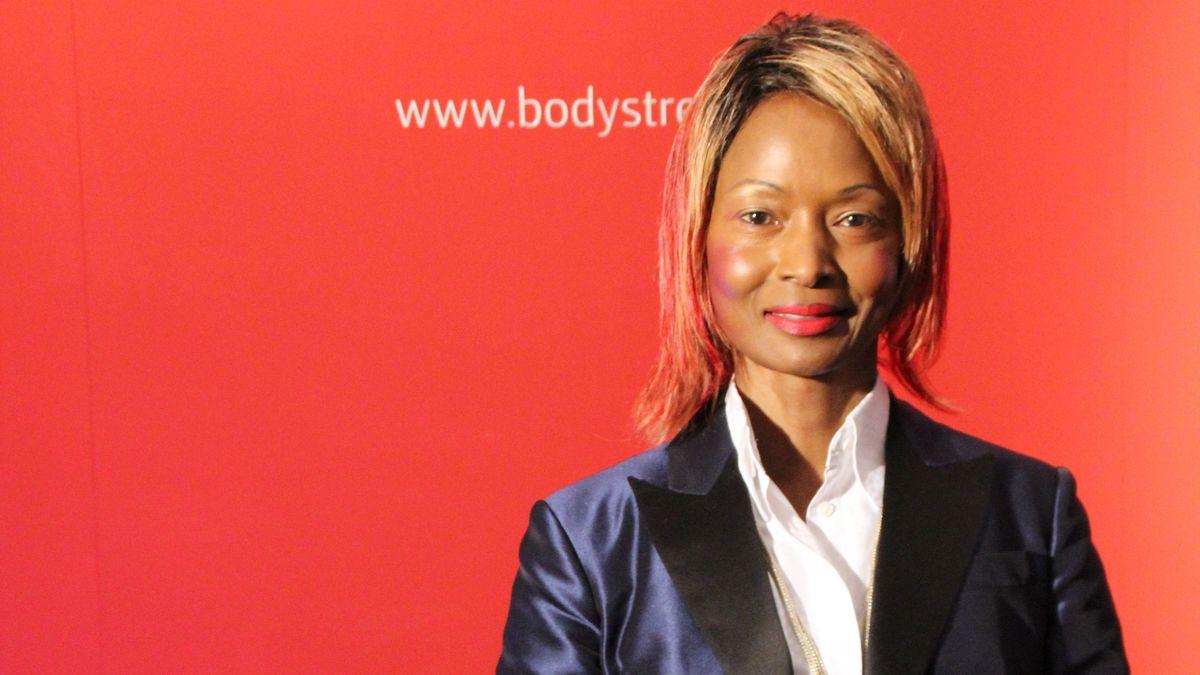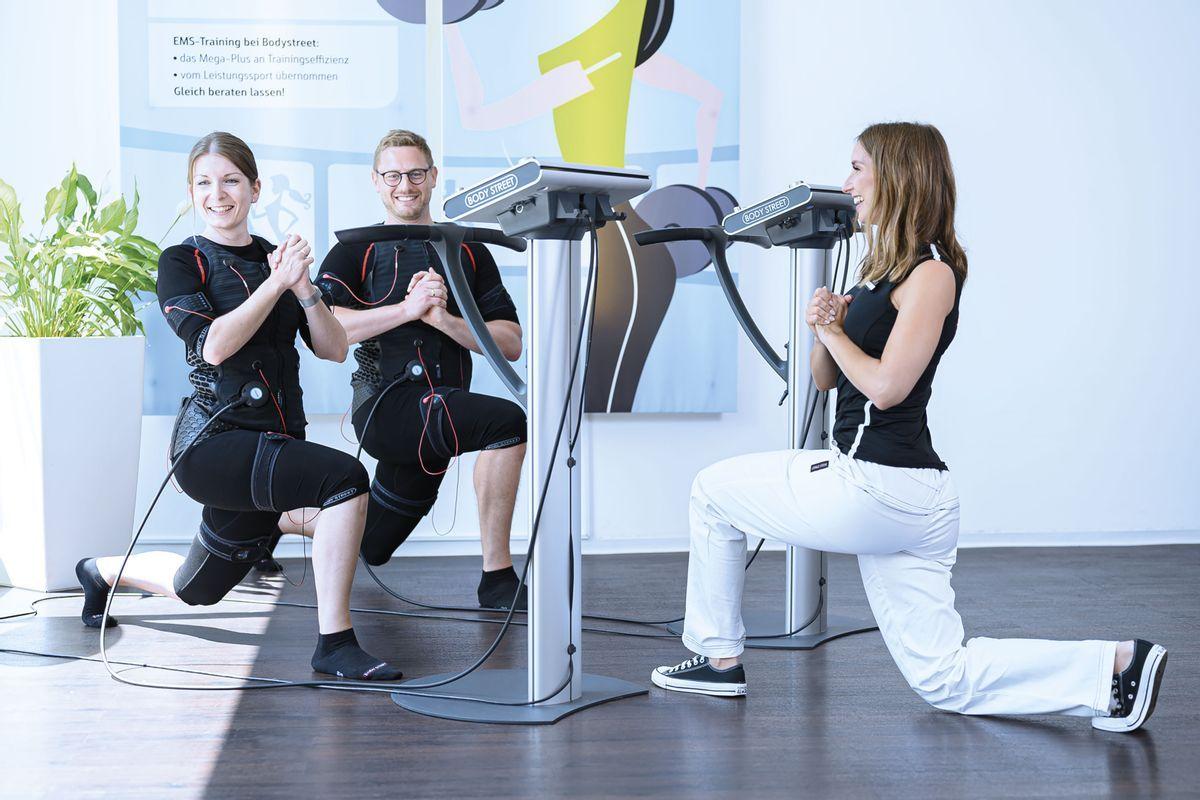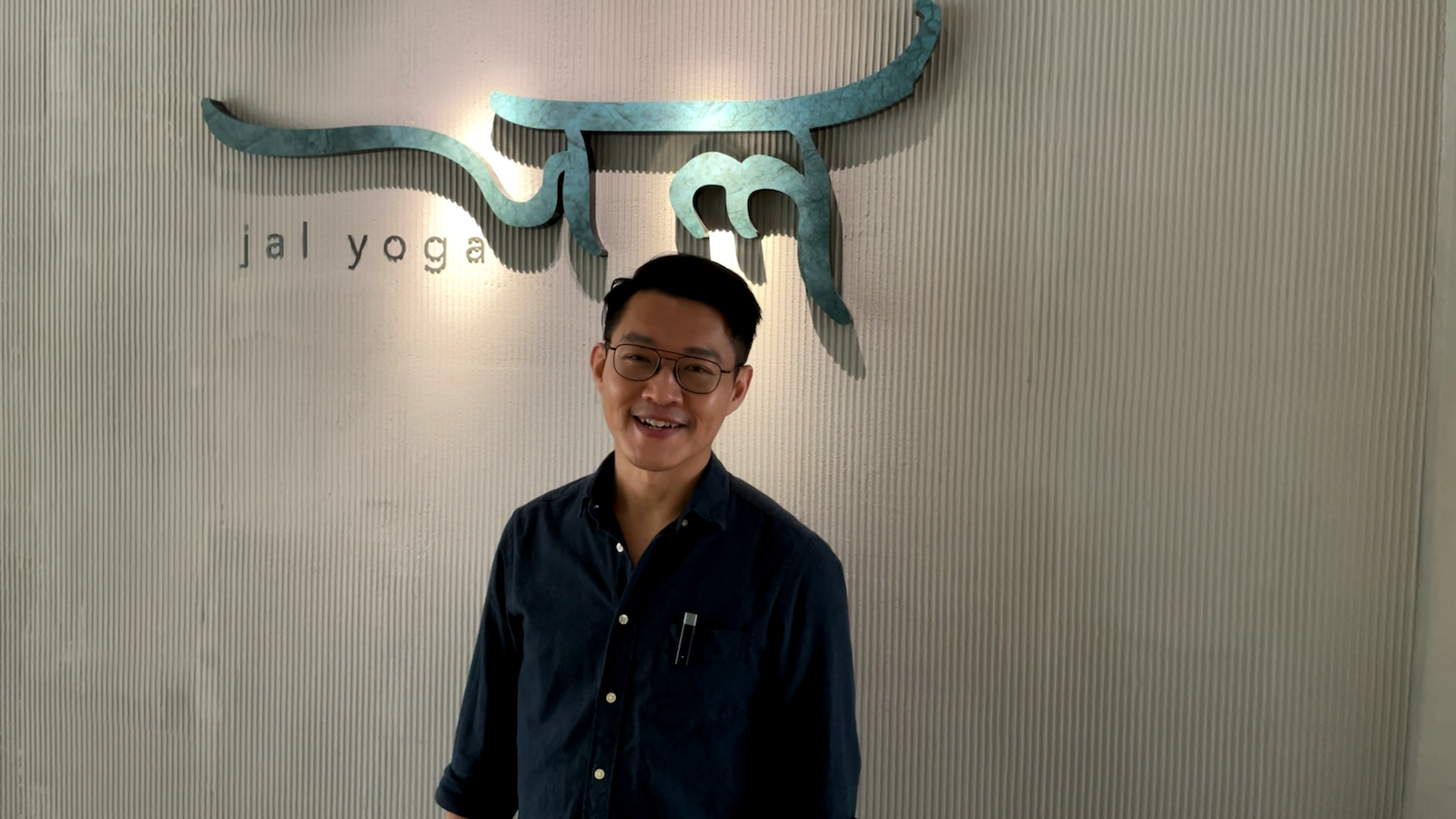CONVERSATIONS |
Emma Lehner, BODY STREET | Founder Interview
Written by Amit Sharma, Community Development Manager
A trailblazer entrepreneur, Emma Lehner, co-founder and CEO of EMS-focused concept Bodystreet - World Leader In Boutique Fitness Studios, discusses her background as a pro athlete, the importance of sports, leadership, values and what makes Bodystreet an attractive franchise opportunity in Singapore.
What inspired you to start Bodystreet and where did it all begin?
Emma: I just wanted to make it possible for people to have a better quality of life. This means even when they get older, they can still be healthy and do whatever they want. Because when I was working in the hospital, I could see people suffering from these, more or less, lifestyle diseases, which are not necessary and you can avoid that through a healthy lifestyle. So, that's why I went out and said that I have to help people stay healthy.
And since I have been a professional sportswoman therefore, I appreciate the importance of fitness. However, it was very expensive to just start a gym and be like other gyms that already had huge chains in different areas. I thought that we have to be different, and we have to do something else. So, I bought a very old gym that was among the first four gyms in Munich. Initially, we called it Munich Health.
How did you come up with the name Body Street?
Emma: At first, we had a professional gym, called Munich Health and we wanted to take everything from a conventional gym to a small place where we thought that people can do everything in one place and they won't need to go anywhere. For example, they usually would go to one place where they run, and then to another where they go for maybe consulting about nutrition. So, I put it all in one place and that's why Bodystreet got its name. One street where we can do all things at once around, health and lifestyle.

What is it about Body Street that excites you the most?
Emma: What excites me most is the culture of Bodystreet because Bodystreet is all about culture and values, not about the exercises alone. It's about, helping other people and it is about sustainability. Our values are a binding "inner compass" for us – in our day-to-day business as well as in strategic decisions. RICHY is the acronym for the Bodystreet brand values – RICHY – Respect, Integrity, Client focus, Have fun, and Know Your Why.
Who according to you is Bodystreet’s core customer segment?
Emma: Within the market, I would say that our target group are actually people of middle age who want to live just a healthy lifestyle for prevention. So, they are from 40 plus and include a lot of business people too, who usually have little time for exercise, but they wish to do something to stay fit.
Bodystreet proactively promotes climate projects, environmental issues and ecology. Can you please tell us more about it?
Emma: We are also concentrating on developing and extending our own nutrition line. to develop more health food for the people because we believe it is a very good combination - sports and healthy food.
Moreover, we are also working on promoting climate projects. So, for example, Bodystreet supports a climate protection programme with Gold Standard in Uganda. In the Kikonda Forest Reserve, more than 8 million trees have been planted through reforestation, 600 jobs created, agricultural productivity and water supply enhanced, support given to local schools and improvement of the natural habitat of native species to secure the natural habitat of indigenous species have all been achieved.
We also do a lot for environment sustainability by implementing many energy efficiency measures and at the same time are working to further reduce our indirect CO2 emissions. And we have even won the Green Franchisor award in Germany because of such particular climate promotion projects and for ensuring that our studios have less energy consumption. To date, we have already saved 18,000 emission tonnes per year and I doubt there's no any other gym that has achieved this feat.
That apart, we also have the Bodystreet Kids Foundation especially dedicated to kids and young people who are "not into sports". The aim is to provide them with values such as health, enthusiasm, activity, respect and teamwork. The tools for young people, so that they can develop into responsible adults and successfully master their lives. I believe that if you teach them from the beginning as young children, then they think this is like cleaning teeth and it becomes part of their daily life.
What trends in fitness technology do you see emerging in near future?
Emma: Technology will certainly dominate fitness concepts going forward. Especially after the COVID time when the fitness industry pivoted online. We’ve even seen other industries and major companies like Apple and Amazon coming into fitness and developing devices for people to exercise at home. Therefore, technology is definitely a huge part of fitness and it will grow even more. I also see shorter terms of training growing in the near future.
Has Body Sheet been everything that you expected it to be in the past one year?
Emma: We’ve adapted and grown faster in the post-pandemic period over the last one year. For instance, earlier we didn't expect to really have this new technology which you have now with the suit, for example, this is hygienic and has very high standards. Now we ensure that everybody has got their own suits unlike earlier when they were sharing.
We're further expecting huge growth worldwide because now people are more conscious about fitness and educated about sports after the pandemic. Even governments around the world have taken extra efforts to educate people more, encouraging them to actively take up sports and fitness as a priority. And as the population is becoming older and older, people, are looking for meaningful ways to stay healthy. And because of its personal training concept, Bodystreet, I would say has a really strong future
What excites you most about the world of franchising?
Emma: First of all, franchising helps other people who are not even from that particular branch to become successful entrepreneurs. The other thing is that it helps as many people as possible, especially young people, get jobs and education. So, I think that's important. It makes me very happy to see young people growing and developing the business opportunity else they would just waste their time sitting on the road, doing crazy stuff. The other thing that I find exciting about franchising is the opportunity to serve thousands and thousands of people with the same quality standards all over the world.
What other thing do you look for in the franchise partner for Bodystreet?
Emma: I think anybody who has a spirit of entrepreneurship and is also interested in sports. It is because, you have to absolutely love what you are doing. So, if somebody's like that, that makes them a great fit for our fitness franchise opportunities in Singapore. As for the rest, they can learn everything else.
How do you think Body Street was able to cope during the COVID time?
Emma: Bodystreet was fast growing successful before the pandemic and we knew already at our headquarters of Body Street, we need to develop the system, but we are very busy growing, so we didn't have enough time to develop new stuff, new things, which would help us to be more successful in the future.
So, when the COVID pandemic came, that was really the time to say, Okay, now we must start. Yeah. So, we modernized, and we brought a lot of innovations. For example, the Bodystreet app, which we didn't have before. Similarly, the Bodystreet suits and then the online training. Yeah. So that was the time, we had to think out of the box and adapt.
Many entrepreneurs admire your success but would also want to know a little bit about the road bumps that you hit along the way. Could you share some specific examples of where you have met and overcome challenges?
Emma: Yeah. I think the challenge is always to ensure that our Bodystreet studios follow the same quality standards everywhere in the world. That's a huge challenge because sometimes people say, for example, when we started it in England, they started to say no, and were hesitant, saying that it is different there unlike in Germany since they believed that the culture is different. But then you have to stick to the required standard and convince them to just try.
To ensure that franchisees maintain Bodystreet’s quality standards, we have kept area managers who go straight to the franchisees and guide them on the required standards. They also take an effort to teach our franchisees the reason and meaning behind the set standards. So, that the franchisees are not just following them but also realise as to why it is critical to follow the standards.
What are some of the greatest lessons you've learned on your epic journey?
Emma: I have learned that firstly, leadership is very, very important. And leadership plays a big role, especially in franchising. But the traditional leadership style doesn't work like, just because somebody has the authority, they can say this and that, and others are doing it. No, it doesn't work like that instead, leadership with the same level of respect, between the franchisor and franchisee.
Secondly, one must be clear about what one wants and be transparent. So, it is important to tell people how it should be done and then explain to them more as to why it should be like that. Therefore, according to me, leadership and transparency are key to success in franchising in order to draw the whole community so it belongs together and follows the same values.
You've been a successful athlete and now a successful businesswoman too. Do you think there's a similarity between sports and business?
Emma: Yeah. There’s a huge similarity! I believe that of sportsmen/ sportswomen start a business, most of the time they'll be successful. It is because one starts one’s journey in sports at a very small age so you learn discipline very early on in life. And discipline is important in business. You also learn teamwork, and a business without a team is not possible. You also learn to stick together as a team with the trainer, so sports also teach you teamwork. And then the third thing is flexibility.
Flexibility helps in case let’s say if one thing doesn't work, you’ll say, okay, let’s try something else. And also apart from flexibility, one other very, important thing that sport teaches you is to have courage. Especially those who are preparing themselves to go to the Olympic games require huge courage. It is very important to be courageous, especially because as an entrepreneur you always have challenges and risks. So sometimes you may just jump in the cold waters and say, Okay, I'm going to try this and if it works, it's good and if it doesn't work, then you don’t drag on.
Yet another important thing that sport teaches you is to have a vision because without vision you cannot win. Similarly, as an entrepreneur too, you need to have a vision. Say you have the imagination, okay I want so many locations, but you have to then transfer this vision to your team. Therefore, you learn to have a target. And sport also teaches you to always work on becoming better. I think that is also important in business. It’s like, Usain bolt, even after running 100 meters, in record time, saying that next time he wants to be one second better and then one second better. I think this applies to business as well. I always advise people to send their children to sports. It doesn't matter even if they don't go to the Olympics but it will always help them learn important life skills.
What are some of the advantages of being a Body Street franchisee?
Emma: First of all, we have a very, very professional support system. For example, at Bodystreet, we have these designated area managers who are always going to the locations and talking with our franchisors.
And we also have, what we call a Balanced Scorecard. With a Balanced Scorecard, franchisees can always watch and see when the franchises started, when they're coming to their break even and when are they going to open the other one. So, if they see there's something wrong, they can respond earlier. Secondly, our marketing department is extremely professional and oversees different kinds of marketing activities and social media for the Bodystreet brand. We really get lots of positive feedback on our marketing presentations of the brand.
Please tell us about Bodystreet Academy. How do you think the Body Street Academy makes a difference?
Emma: To ensure the quality of the Bodystreet brand and to promote the personal development of all franchise partners, studio managers and employees, Bodystreet has set up its own Academy. Training is provided – among other things with Virtual Reality applications – internationally, centrally, locally and on the web.
It’s been developed in-house for over 20 years with participation from the industry’s top doctors, and academicians, as well as our own know-how that has been properly documented. We have a lot of manuals and everything is preserved at the Bodystreet Academy and in our knowledge centre which allows us to teach again and again to the people who come there.

How Long Does It Take For Franchisee To Break Even?
Emma: You know, Bodystreet franchise isn’t like a normal gym where you need like 2000 members to achieve high ROI. We have what we call the ‘Roadmap to Success’. The roadmap to success shows that most of the time, after 60 to 80 members you can easily reach your breakeven.
What exciting markets in Southeast Asia are you looking at?
Emma: Singapore is a global hub and a great opportunity to deliver the Bodystreet experience. As the world Leader In EMS-focused concept and boutique fitness studios, we are presently offering exciting franchising opportunities in Singapore. And then from here, we plan to grow to other South Asian countries.
Do you have a mentor or somebody you look up to for inspiration?
Emma: I look up to Angela Merkel as my inspiration. She is extraordinary. She was the first female Chancellor of Germany and served for 16 years and became a very powerful woman in the world. And I like her leadership style because she shows humility in leadership and I find it really inspiring.
What do you know now that you wish you knew when you started your business?
Emma: You know, to be really successful, leadership is so important. So, I would educate myself more in key areas of business leadership rather than wait and then start later in Life. Yeah, so I think at the beginning I would do that.
What are the three things one needs, according to you to become a successful entrepreneur?
Emma: First of all, as I said before, leadership. A good leader should have humility, ethics, strong values and be transparent because nowadays these are very, very important. The second thing is the ability to take risks. Just have the courage to take risks otherwise, you won't move forward. Thirdly, just train yourself to be able to always go one step back in order to take three steps forward. That's so important because you know, you cannot always move, and move forward.
Otherwise, you will lose something, or you will lose control. And that is very bad for leadership. Because If as a leader, you lose control, you feel worse inside yourself and then maybe you start to being crazier and you may not know what's going on.
So, always go one step back and then think over and then go two steps ahead. Then again a step two steps back and move three to four steps ahead. That helps a lot.
What are your top 3 tips to stay productive each day?
Emma: One thing that most business people, even very successful ones always forget is, to take care of themselves and then they go, and have stress and suffer poor health. So, I think for me, one of the very important things to be really successful for years and years, is you really must have the discipline to control yourself. Meaning that there's a time for work, there's a time for fun, there's a time for food or family or, so you should be able to just have cut-off and say, okay, this is now the time for my family or this is now the time for my children and this is now the time for my business.
And if you do like that, then sometimes you can also take time out for yourself. Probably, just go to a wellness hotel for one week and then come back and then get back to work, all rejuvenated. But this really needs discipline. Let’s say you are going out, and you know that tomorrow you have another appointment at eight in the morning. Discipline, says 10 o'clock you must end and tell your people I love you, but I have to go now. Don't stay until three o'clock in the morning because then, if you have an appointment at eight and you’ll come looking tired in the meeting. So, to just say in one word, Discipline for self-control.
If you were to give three tips to an aspiring franchisee. What would your tip be?
Emma: First of all, It's very important to understand which system fits with your own values. You can't just join something because you want to invest in something that is very popular. So, first of all, look if the system fits you and your values. For example, I tell always my people that at Bodystreet, our value is to make people healthy.
Secondly, look at how you feel about the franchisor. Because in Germany, they say franchise and business are like a marriage, it’s meant to be a long-term relationship. So, if you don't love them then one year later or three years, you feel like, no, I don't want to continue and want to go out of the system. But you have invested already and must realize that you have your employees also, and they too hang with you in the system. So, the longer the relationship, the better.
Okay, so if it fits your value system and you are okay with the franchisor, then the third thing is to see if they have their own outlets that they operate and also own systems. For example, fitness or food or restaurants, it may be anything, any business, do they have their own operated studios or outlets and since how long have they been in the business? According to me, these are the three most important things that an aspiring franchisee must look out for.
You Might Also Like

CONVERSATIONS | 8 March 2023
Serene Ang, Snackz It! 可口味 | Founder Interview
On the eve of International Women's Day, we share a conversation with serial entrepreneur, Serene Ang, Founder, Snackz It! 可口味 on her inspiring journey and franchise opportunities in Singapore.

CONVERSATIONS | 7 March 2023
Tricia Tan, Omoté | Interview
On the eve of International Women's Day, we share a conversation with culinary trailblazer, Tricia Tan, Brand Manager, Omoté on her inspiring journey and insights on franchising.

CONVERSATIONS | 19 August 2022
"It’s Been An Amazing Journey" - Yee Chong, Jal Yoga, Malaysia Franchise Partner
Yee Chong, Jal Yoga’s franchise partner for Malaysia, is charting new territories and milestones as he leads a thriving fitness and wellness revolution.
Latest on TFA

EXPLORE | 31 January 2026
Japanese Dining Continues to Dominate: EN Group Eyes the Philippines for Its Next Growth Chapter
Japanese cuisine has evolved from a niche international offering into one of the most resilient and preferred dining categories in the Philippines.

SUCCESS | 20 November 2025
Omoté: Singapore’s Beloved Modern Japanese Eatery Lands in the Philippines
Omoté has long been one of Singapore’s most beloved modern Japanese dining spots, well-known for its generous chirashi bowls, progressive Japanese flavors, and its philosophy of serving quality food a

SPOTLIGHT | 14 November 2025
From a Small Dream to a Big Movement: The Story Behind Smashed
Some brands start with capital. Others start with credentials. Smashed started with heart.